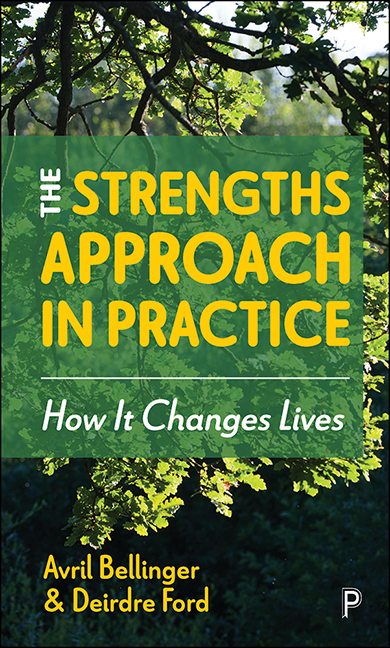Book contents
- Frontmatter
- Dedication
- Contents
- List of figures, tables and boxes
- About the authors
- Acknowledgements
- Preface
- Introduction: The strengths approach in a global emergency
- 1 A strengths approach to human need
- 2 A strengths approach to law and policy
- 3 A strengths approach to organisational development
- 4 A strengths approach to governance and management
- 5 A strengths approach to funding an NGO
- 6 A strengths approach to research
- 7 A strengths approach to student learning
- 8 A strengths approach to growing community
- 9 The strengths approach in practice: how it changes lives
- References
- Index
5 - A strengths approach to funding an NGO
Published online by Cambridge University Press: 15 September 2022
- Frontmatter
- Dedication
- Contents
- List of figures, tables and boxes
- About the authors
- Acknowledgements
- Preface
- Introduction: The strengths approach in a global emergency
- 1 A strengths approach to human need
- 2 A strengths approach to law and policy
- 3 A strengths approach to organisational development
- 4 A strengths approach to governance and management
- 5 A strengths approach to funding an NGO
- 6 A strengths approach to research
- 7 A strengths approach to student learning
- 8 A strengths approach to growing community
- 9 The strengths approach in practice: how it changes lives
- References
- Index
Summary
Intra-dependence, mutuality, and enriched co-existence are hallmarks of both natural and social systems deemed resilient and thriving.
Whiteford (2016: 26)This chapter examines the nature of the relationship between NGOs and the sources of their funding. We reflect on the fact that money can have both positive and negative impact and explore some of the possibilities for mitigating its risks. The ways in which NGOs are funded are highly contextual – manifestations of the time and place in which the NGO operates. There are, however, some enduring and transferable truths about how a strengths approach can influence the health and resilience of any organisation that does not rely on a capitalist model of income generation and profit.
Neoliberal societies revere money as the key resource for an organisation. Money though, however welcome, always has consequences, both intended and unintended. In a capitalist world there is no such thing as ‘clean money’ and all profit may be regarded as exploitation of the earth's finite resources, of people's labour or both. Money does not come without expectation – whether it is to show the donor in a good light or in some other transactional relationship. Inevitably, funding is accompanied by requirements for outputs and outcomes as if community action for social change is nothing more than a commercial transaction. But the resources of any organisation are much more than money. A strengths approach recognises the environmental potential and the capabilities of service users, communities, students and their labour, alongside unexpected alliances. We also know that, without adequate funding to maintain a supportive structure, access to those resources may be lost.
While financial sufficiency is important for an NGO's continuation, it would be a huge mistake to regard it as the most important element of its resourcing. For money to become its central concern is to remove the core and leave the work without a heart. We fully acknowledge that money matters; Chapter 3 describes the impact of both the sudden increase and then the loss of funding on the organisation's development. Nevertheless, money is the oil – not the machine itself.
- Type
- Chapter
- Information
- The Strengths Approach in PracticeHow It Changes Lives, pp. 102 - 121Publisher: Bristol University PressPrint publication year: 2022



